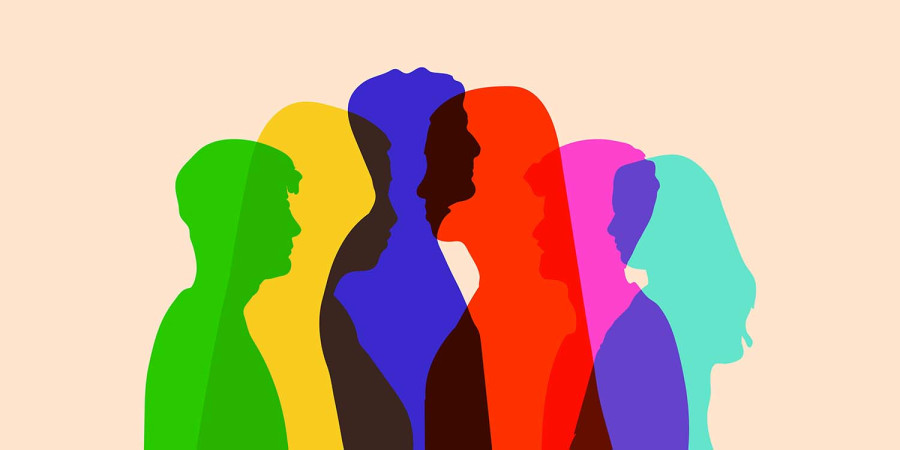Culture & Lifestyle
Pop psychology vs real psychology: what you need to know
Viral psychology trends simplify complex ideas, but experts warn that self-diagnosis, one-size-fits-all advice, and catchy slogans can do more harm than good.
Aarya Chand
In today’s digital culture, psychology is everywhere—from Instagram reels on attachment styles to self-help books promising instant confidence. However, what people often consume is not psychology in its scientific sense, but what experts call ‘pop psychology’.
“Popular psychology is what we mostly see on social media, in self-help books, or in motivational talks,” explains Anjana Das Pariyar, psychologist and lecturer. “It is often simple, emotional, and easy to share, but it is not always systematic or reliable. Actual psychology, on the other hand, is scientific and based on research, theories, and experiments. It does not just focus on ideas that sound good, but on tested and proven evidence.”
Academic researcher Bhawana Shrestha, who studies education, emotion, and society, adds that accessibility is a key reason for pop psychology’s rapid spread. “Pop psychology spreads faster because it gives people what they want: clear, catchy advice and quick fixes that feel empowering. Rigorous research, by contrast, is cautious, layered, and often conditional. It avoids sweeping claims, but that nuance makes it harder to go viral.”
Regarding misconceptions, clinical psychologist Suman Koirala says that the gap often shows up in therapy sessions. “Clients come to therapy thinking it will solve everything,” she says. “They believe that if they start therapy, their anxiety will disappear completely. But therapy is a slow and gradual process. It takes effort, challenging your beliefs, and learning to sit with uncomfortable emotions.”
She adds that people often use terms like “trauma,” “depression,” or “narcissism” loosely, based only on social media. “When people label themselves as introvert or extrovert, or say ‘I’m depressed’ without understanding the meaning, it can make change harder. Once you put that label on yourself, there’s little room for growth.”
Therapist Nikita Shrestha Shakya shares these concerns, noting how easily people turn to Google or AI tools for self-diagnosis. “Terms like Obsessive Compulsive Disorder (OCD) or Borderline Personality Disorder (BPD) are often self-applied without professional guidance,” she says. “While online resources can provide general information, self-diagnosis can worsen anxiety. Professional assessment is essential to understand the full context and receive appropriate support.”
She also points out how pop psychology can make people believe one technique works for all. “Some clients love journaling, but others hate it. Self-help books or trends like cold plunges may help some, but they are not universal solutions. Each individual has a unique personality and coping mechanism. Strategies need to be tailored, not assumed to work for everyone.”
Despite the risks, psychologists agree that popular ideas can sometimes spark helpful conversations. “It is bringing the ideas of mental health into everyday life,” says Koirala. “People are more aware and curious, which is good. But the danger is that social media dramatises everything. Depression, for example, is often shown as someone sad, isolated, and visibly struggling. But many people with depression function day-to-day, and that reality gets overlooked.”
Pariyar has seen both sides in her own practice. “One student first learned about boundaries on Instagram. That encouraged her to start therapy, which was a positive outcome,” she says. “But another client believed that every disagreement meant the relationship was toxic because she read that ‘anyone who hurts your feelings is bad for you.’ In actual psychology, conflict is normal and can strengthen relationships if resolved well.”
For Shrestha, one of the biggest gaps between public belief and research is around certainty. “The public often believes psychology offers fixed truths, like personality being static or mental health strategies working universally. But research shows these things are fluid, context-dependent, and culturally influenced. Human behaviour is too dynamic to fit neatly into one-size-fits-all formulas.”
She adds that researchers are responsible for making findings more accessible without distorting them. “Research that stays confined to journals risks becoming irrelevant to the communities it could benefit. The goal should be to simplify responsibly, not strip away the richness of the evidence.”
When asked what they would most like to correct, the experts shared recurring themes.
Pariyar highlights the phrase “you must love yourself before anyone else can love you.” She explains, “It sounds empowering, but it is not fully accurate. Many people discover their value through supportive relationships, not just by building self-love first. Healing paths are diverse.”
Shrestha Shakya worries about the growing belief that online quizzes or alternative substances can diagnose or cure mental health conditions. “People take a test and think they have a disorder. Or worse, some turn to so-called ‘magic mushrooms,’ believing they will improve mental health. In reality, they can worsen existing conditions and create lasting harm.”
Koirala points to the concept of emotional validation. “The idea that emotions matter is important, but it has been exaggerated. Some people now use it as an excuse to be rude in the name of honesty. Emotions are markers, not commands. They need to be understood and combined with rational thought.”
The rise of pop psychology shows that people are eager to engage with mental health and personal growth. However, experts urge caution regarding how these ideas are consumed and applied. Therapy requires time, effort, and a willingness to go beyond catchy slogans. Research-based psychology may not offer easy answers, but it provides tools grounded in evidence and tailored to individual lives.
As Koirala sums it up, “Pop psychology can inspire curiosity, but actual psychology—systematic, scientific, and evidence-based—guided by standards such as the DSM-5 and ICD—helps people understand themselves and grow.”




 19.12°C Kathmandu
19.12°C Kathmandu















